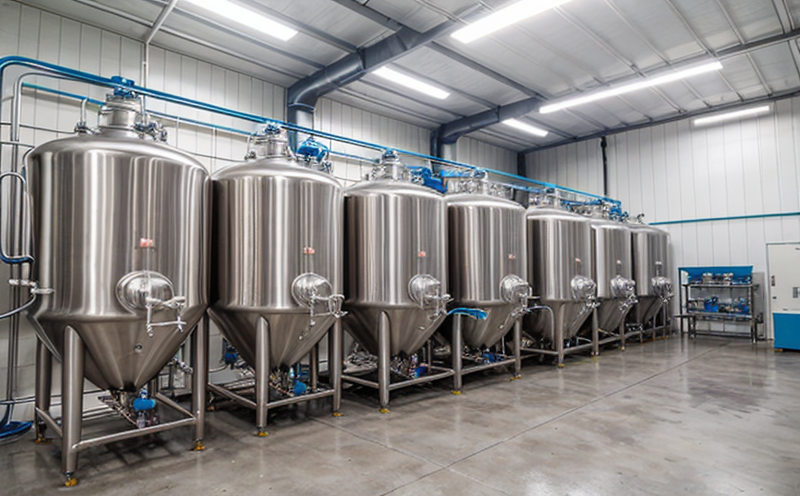EN 15789 Vibrio spp. Detection in Biotech Processes
The European standard EN 15789 provides a robust methodology for the detection and quantification of Vibrio species, which are crucially important in biotechnology processes. These microorganisms can have significant impacts on industrial fermentation processes due to their ability to produce spoilage compounds or cause contamination issues.
The presence of Vibrio spp. in biotech fermentations can lead to a myriad of problems including off-flavors and aromas, reduced product quality, as well as potential health risks if the products are intended for human consumption. Therefore, accurate and reliable detection methods like those prescribed by EN 15789 are essential.
This service leverages advanced microbiological techniques to ensure compliance with international standards while also providing insights into the performance of your biotech processes. Our laboratory follows a stringent protocol that includes sample collection, preliminary screening, growth conditions optimization, and final identification using molecular biology methods such as PCR (Polymerase Chain Reaction) and sequencing.
The protocol ensures accurate detection levels down to single-cell limits, making it particularly useful for sensitive bioprocesses. This precision allows us not only to identify the presence of Vibrio spp., but also to determine their exact species which is critical for understanding potential risks and implementing appropriate mitigation strategies.
Our approach begins with a comprehensive review of your specific requirements and process parameters, ensuring that our service aligns perfectly with your needs. Once the samples are received, they undergo rigorous quality assurance checks before undergoing the detection procedure outlined in EN 15789. Afterward, detailed reports including raw data, statistical analysis, and recommendations for future actions are provided.
The results of this testing can be instrumental in preventing costly rework or product recalls by identifying potential issues early on. Furthermore, it supports continuous improvement initiatives within your biotech operations by providing actionable intelligence about the microbial flora present in your processes.
Why It Matters
The importance of detecting and controlling Vibrio spp., as per EN 15789, cannot be overstated. In industrial fermentation processes, these bacteria can cause significant disruptions by introducing unwanted flavors, odors, or even toxicity into the final product.
- Enhances product quality control
- Aids in maintaining regulatory compliance
- Supports sustainable bioprocess optimization
- Facilitates early intervention against contamination risks
The timely detection of Vibrio spp. allows for proactive measures to be taken, thereby minimizing the impact on production schedules and costs associated with post-hoc remediation efforts.
Industry Applications
This service has wide-ranging applications across various sectors where biotechnology plays a pivotal role. Industries such as food & beverage, pharmaceuticals, cosmetics, and chemical manufacturing all benefit from ensuring the absence of Vibrio spp., especially in areas involving fermentation or microbial growth.
| Industry Sector | Key Benefits |
|---|---|
| Food & Beverage | Avoids spoilage and maintains product integrity |
| Pharmaceuticals | Ensures drug safety and efficacy |
| Cosmetics | Promotes ingredient purity and consumer trust |
| Chemical Manufacturing | Prevents contamination of reactive intermediates
Use Cases and Application Examples
- In a brewing company, detecting Vibrio spp. helps prevent off-flavors that could ruin batches of beer.
- A pharmaceutical firm utilizes this service to ensure that their fermentation tanks remain free from contamination during drug development stages.
- An industrial chemical manufacturer uses our service to monitor the microbial quality of raw materials used in their processes.
These examples highlight how our EN 15789 compliance testing contributes directly to maintaining high standards of hygiene and quality across different industries. By adhering strictly to this standard, businesses can protect both their reputation and customer satisfaction.





